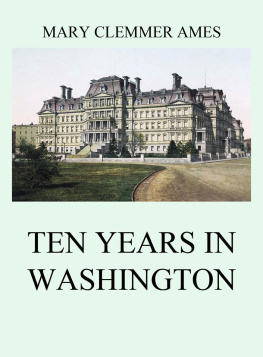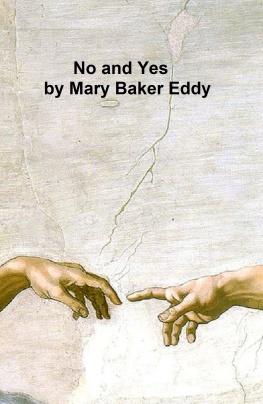ILLUSTRATIONS
MADAME WADDINGTON Frontispiece
From a photograph taken in the year of the Exposition, 1878.
MONSIEUR THIERS
MARSHAL MACMAHON
SITTING OF THE NATIONAL ASSEMBLY AT THE PALACE OF VERSAILLES
THE FOYER OF THE OPERA
MEETING OF OFFICERS OF THE NATIONAL ASSEMBLY, AND OF DELEGATES OF THE NEW CHAMBERS, IN THE SALON OF HERCULES, PALACE OF VERSAILLES
THEODOR MOMMSEN
PALACE OF THE MINISTER OF FOREIGN AFFAIRS, PARIS
FRANZ LISZT
WILLIAM E. GLADSTONE
LORD LYONS
HIS ROYAL HIGHNESS, EDWARD, PRINCE OF WALES, IN 1876
PRINCE HOHENLOHE
M. WILLIAM WADDINGTON. IN THE UNIFORM HE WORE AS MINISTER OF FOREIGN AFFAIRS AND AT THE BERLIN CONGRESS, 1878
NASR-ED-DIN, SHAH OF PERSIA
PRINCE BISMARCK
THE BERLIN CONGRESS
M. JULES GRVY, READING MARSHAL MACMAHON'S LETTER OF RESIGNATION TO THE CHAMBER OF DEPUTIES
M. JULES GRVY ELECTED PRESIDENT OF THE REPUBLIC BY THE SENATE AND CHAMBER OF DEPUTIES MEETING AS THE NATIONAL ASSEMBLY
THE ELYSE PALACE, PARIS
HER MAJESTY QUEEN VICTORIA, ABOUT 1879
M. DE FREYCINET
MME. SADI CARNOT
PRESIDENT SADI CARNOT
I
WHEN MACMAHON WAS PRESIDENT
I was married in Paris in November, 1874, at the French Protestant Chapel of the rue Taitbout, by Monsieur Bersier, one of the ablest and most eloquent pastors of the Protestant church. We had just established ourselves in Paris, after having lived seven years in Rome. We had a vague idea of going back to America, and Paris seemed a first step in that directionwas nearer New York than Rome. I knew very little of Francewe had never lived theremerely stayed a few weeks in the spring and autumn, coming and going from Italy. My husband was a deputy, named to the National Assembly in Bordeaux in 1871, by his Departmentthe Aisne. He had some difficulty in getting to Bordeaux. Communications and transports were not easy, as the Germans were still in the country, and, what was more important, he hadn't any moneycouldn't correspond with his banker, in Paris(he was living in the country). However, a sufficient amount was found in the country, and he was able to make his journey. When I married, the Assembly was sitting at Versailles. Monsieur Thiers, the first President of the Republic, had been overthrown in May, 1873Marshal MacMahon named in his place. W.[1] had had a short ministry (public instruction) under Monsieur Thiers, but he was so convinced that it would not last that he never even went to the ministrysaw his directors in his own rooms. I was plunged at once into absolutely new surroundings. W.'s personal friends were principally Orleanists and the literary element of Parishis colleagues at the Institute. The first houses I was taken to in Paris were the Sgurs, Remusats, Lasteyries, Casimir Priers, Gallieras, d'Haussonville, Lon Say, and some of the Protestant familiesPourtals, Andr Bartholdi, Mallet, etc. It was such an entirely different world from any I had been accustomed to that it took me some time to feel at home in my new milieu. Political feeling was very strongall sorts of fresh, young elements coming to the front. The Franco-German War was just overthe French very sore and bitter after their defeat. There was a strong underlying feeling of violent animosity to the Emperor, who had lost them two of their fairest provinces, and a passionate desire for the revanche. The feeling was very bitter between the two branches of the Royalist party, Legitimists and Orleanists. One night at a party in the Faubourg St. Germain, I saw a well-known fashionable woman of the extreme Legitimist party turn her back on the Comtesse de Paris. The receptions and visits were not always easy nor pleasant, even though I was a stranger and had no ties with any former government. I remember one of my first visits to a well-known Legitimist countess in the Faubourg St. Germain; I went on her reception day, a thing all young women are most particular about in Paris. I found her with a circle of ladies sitting around her, none of whom I knew. They were all very civil, only I was astonished at the way the mistress of the house mentioned my name every time she spoke to me: "Madame Waddington, tes-vous alle l'Opra hier soir," "Madame Waddington, vous montez cheval tous les matins, je crois," "Monsieur Waddington va tous les vendredis l'Institut, il me semble," etc. I was rather surprised and said to W. when I got home, "How curious it is, that way of saying one's name all the time; I suppose it is an old-fashioned French custom. Madame de B. must have said 'Waddington' twenty times during my rather short visit." He was much amused. "Don't you know why? So that all the people might know who you were and not say awful things about the 'infecte gouvernement' and the Republic, 'which no gentleman could serve.'"
[Footnote 1: "W.," here and throughout this book, refers to Madame
Waddington's husband, M. William Waddington.]
[Illustration: Monsieur Theirs.]
The position of the German Embassy in Paris was very difficult, and unfortunately their first ambassador after the war, Count Arnim, didn't understand (perhaps didn't care to) how difficult it was for a high-spirited nation, which until then had always ranked as a great military power, to accept her humiliation and be just to the victorious adversary. Arnim was an unfortunate appointmentnot at all the man for such a delicate situation. We had known him in Rome in the old days of Pio Nono's reign, where he had a great position as Prussian minister to the Vatican. He and the Countess Arnim received a great deal, and their beautiful rooms in the Palazzo Caffarelli, on the top of the Capitol Hill (the two great statues of Castor and Pollux standing by their horses looking as if they were guarding the entrance) were a brilliant centre for all the Roman and diplomatic world. He was a thorough man of the world, could make himself charming when he chose, but he never had a pleasant manner, was curt, arrogant, with a very strong sense of his own superiority. From the first moment he came to Paris as ambassador, he put people's backs up. They never liked him, never trusted him; whenever he had an unpleasant communication to make, he exaggerated the unpleasantness, never attenuated, and there is so much in the way things are said. The French were very hard upon him when he got into trouble, and certainly his own Government was merciless to him.











